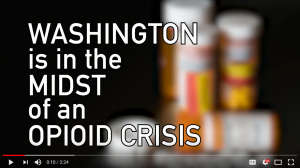Construction budget passes with a record $1 billion to build schools
The new $4.18 billion capital budget, which has now been signed into law, will create thousands of jobs in every corner of the state—and it includes a record $1 billion to build public schools and $800 million to build colleges and universities.
Key projects in the 21st District funded in the capital budget include:
- $37.8 million for the Edmonds Community College: Science, Engineering, Technology Building;
- $2.75 million for the Edmonds Waterfront Center and Waterfront Development;
- $721,000 for the Japanese Gulch Creek Restoration Project;
- $391,000 for the Frances Anderson Center Roofing Project; and
- $257,000 for the Mukilteo Tank Farm Remediation.

Details about statewide investments include:
- $30 million for rural and distressed K-12 schools
- $800 million for state colleges and universities
- $105 million for Housing
- $65 million for Clean Energy, Solar, and Energy Efficiency
- $49 million for Arts, Building Communities, and Youth Recreation programs
- $76 million for Community Behavioral Health capacity
To learn more about statewide investments check out the Capital Budget Highlights.
The Drug Take Back Act
 In 2016 alone, there were almost 700 overdose deaths in Washington sate, over 400 of which were attributed to prescription opioids. Around 70 percent of people who abuse prescription drugs get them from family and friends, including in the medicine cabinet. With Washingtonians filling over 70 million prescriptions in a year, families across the state need a safe, convenient, responsible way to dispose of unused medication.
In 2016 alone, there were almost 700 overdose deaths in Washington sate, over 400 of which were attributed to prescription opioids. Around 70 percent of people who abuse prescription drugs get them from family and friends, including in the medicine cabinet. With Washingtonians filling over 70 million prescriptions in a year, families across the state need a safe, convenient, responsible way to dispose of unused medication.
Unused, expired and leftover medicines accumulate in homes and increase the risks of drug abuse, overdoses and preventable poisonings. To combat this, I’ve introduced the Drug Take Back Act, which requires drug manufacturers to implement safe and secure, year-round disposal programs, including drop-off sites in communities all across the state.
Learn more about the impact of opioids on Washington state and how the Drug Take Back Act can help reduce drug misuse and contribute to a solution to the opioid crisis in this week’s legislative update.
The Washington Voting Rights Act
Communities should reasonably expect their elected bodies to reflect the populations of those who elected them.
At a minimum, our election systems must ensure that communities have an equal and legitimate opportunity to have their voices heard.
However, too often that is not the case.
In Yakima, voters had never elected a Hispanic or Latino city councilmember despite having a population of nearly 40 percent Hispanic or Latino residents.
Then, in 2012, two Yakima Latino citizens sued under the Federal Voting Rights act, claiming that the City of Yakima’s election system unlawfully diluted the Latino vote, and it did not allow for equal participation by Latinos in the election process.
After Yakima was required to change its election system by federal court order, three Latina citizens were elected to the city council.
The Washington Voting Rights Act would allow communities that are systemically disenfranchised in local government elections to work collaboratively with their local governing bodies to adjust local elections without going through costly and time-consuming federal litigation.
If this collaborative process fails after six months, a process that is not available under the Federal Voting Rights Act, communities can then seek relief in state court.
Passing the Washington Voting Rights Act will result in an improved process for addressing systems that perpetually disenfranchise significant segments of local voting populations.
I’m supporting this measure to give underrepresented voters a stronger, more meaningful voice in the government closest to them, and empower them to elect leaders that best reflect their community’s values and vision.
As always, feel free to reach out if you have comments, questions, or ideas.
Sincerely,

Rep. Strom Peterson
